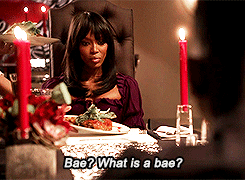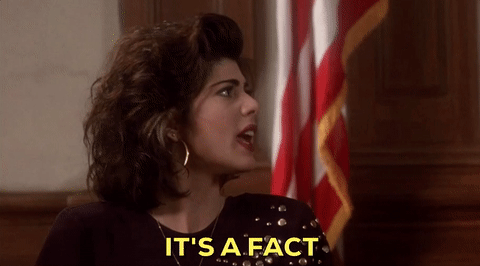So the adult world finally caught on to the term YOLO. #Finally. But what about all those new words we toss around the quads and lecture halls? Have you ever slipped and said “dead-ass” in front of a professor? Odds are the reaction wasn’t positive. But, did you ever think that they might still be picking up on our slang terms? Even after YOLO disappeared?
Read on to find out how students and professors defined and used common slang terms.
1.“On Fleek”

Student: “On point or perfect…. ‘Your eyebrows are on fleek,’” Adelphi University freshman Salma Kassandra Aguilar said.
Adults: “Positive, something really cool. For example, ‘That Beyoncé song was on fleek,’” Adelphi University criminology professor Stephanie Lake said.
“On camera or film. ‘I saw her on fleek,’” Adelphi University mathematics professor William Quirin said.
This one didn’t seem to faze the adults we interviewed, probably because they hear it so often. For those who don’t know, we use this phrase to compliment a person based on a physical attribute (Beyoncé was the perfect example).
2. “Savage”

Student: “Disrespect without care of others. ‘Dang dude, you a savage,’” Adelphi University freshman O-Dan Mathurin said.
Adults: “‘He’s so savage, he’s a pussycat,’” Quirin said.
“Crazy awesome, really cool or exciting. ‘My crew is savage!’” Adelphi University administrative assistant Victoria Desiderio said.
“Savage” stumped the adults, and understandably so. The idea is a little bit more difficult to grasp if you never had anyone explain it to you outright. It usually means opinionated without remorse or care about other opinions. The ultimate example? The Wendy’s Twitter account.
3. “It’s Lit”

Student: “Really fun, swell, fantastic, “That party was really lit,’” Adelphi University freshman Jordana Hidalgo said.
Adults: “It’s done or over, or maybe exciting; “The weed is lit (as an example, not advised),” Quirin said.
“Mathematics is very lit,” Adelphi University mathematics professor Tuval Foguel said.
Not sure if that many people would call math ‘lit,’ but at least the idea is there.
4. “Turn Up”

Student: “To party, being wild, crazy, and savage at a party. “You gonna turn up at tonight’s party, right?’” Mathurin said.
Adults: “Something good, I think, to have fun at a party. ‘Turning up at the party,’” Desiderio said.
“Going all out…’Woo hoo, turn up!!!’” Lake said.
Everyone knew this term meant getting hyped, excited and/or in the mood for a party. It’s weird to imagine, but seriously, everyone (including professors) knows the feeling.
5. “Bae”

Student: “‘Before Anyone Else’ for some, slang for lover or baby for others. ‘My girl is my bae,’” Aguilar explained.
Adults: “Babe or baby, or a significant other. ‘My bae and I are going out later,’” Foguel said.
The professors didn’t know this term was an acronym, but they understood it as a short term for ‘baby.’ At least the idea is close, right?
6. “Dead-ass”

Student: “Seriously (or really)? Confirming a statement. ‘Are you dead-ass about that?’” Hidalgo said.
Adults: “Not feeling it, one who is lazy and does not carry their weight. ‘I have an employee who’s a dead-ass,’” Desiderio said.
“In deep doo-doo,” Quirin said.
Adults were a little too literal here, as “dead-ass” is meant more like a confirmation of what a person says or does. It doesn’t refer to actual feces or negativity…usually.
7. “Weak”

Student: “Reacting to a funny comment or event. ‘I’m so weak,’” Mathurin said.
Adult: “Lame, as opposed to strong. ‘That answer was weak,’” Quirin said.
Millennials usually use this term as a reaction to something hilarious that their friends said. The adults gave it a more physical meaning, but they did get that it was a reaction response.
8. “Shook”

Student: “Shocked, surprised. ‘That girl left me shook,’” Mathurin explained.
Adult: “Moved around, startling. ‘That book was pretty shook,’” Foguel said.
Okay, so none of the adults understood this one correctly—as a reaction to a sudden event or consequence. But, they were awesome sports, and that’s all that really counts, isn’t it?
9. “Slay”

Student: “Doing well, killing it, looking great. ‘Your outfit slayed my life,’” Hidalgo said.
Adult: “Positive, good. ‘I’m going to slay that exam,’” Lake explained.
This one was fine for them, even though you’d usually use it as a compliment for another person than as a description of your own actions. Unless you really did end up slaying that exam. Then you have the right to brag a little bit.
10. “Facts”

Student: “Truth with emphasis, a verb for truth. ‘Facts, yo. So true,’” Aguilar said.
Adult: “True, correct, I guess… ‘Is that facts?’” Desiderio said.
Most adults got this one too, since it is pretty literal and to the point. So, what’s the moral of the story? Next time you slip a little slang during class, don’t assume every professor is out of the loop. They might just surprise you.



















